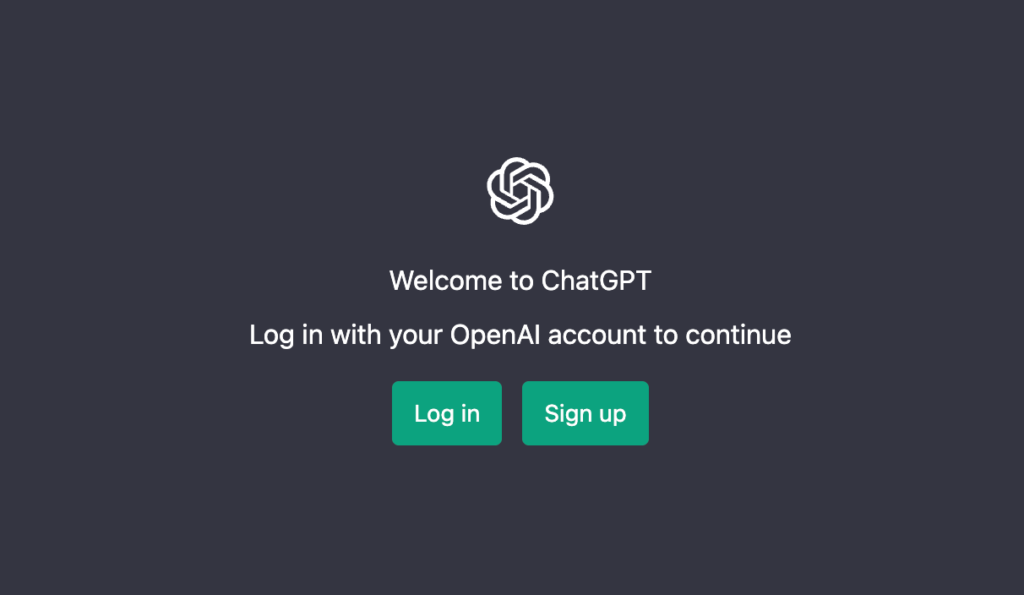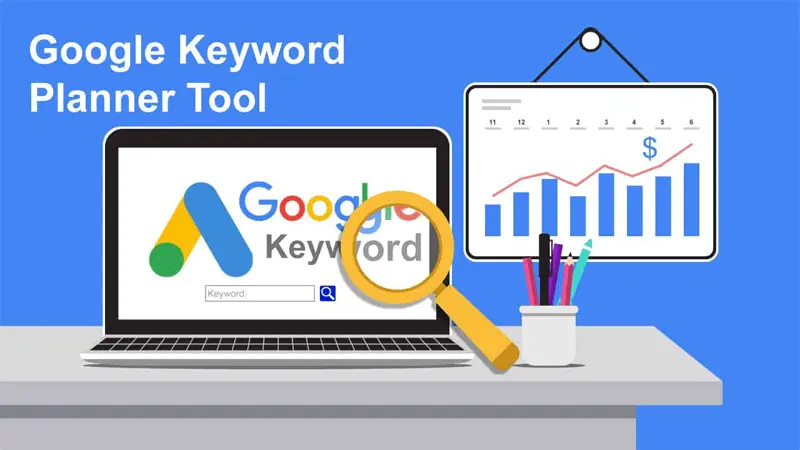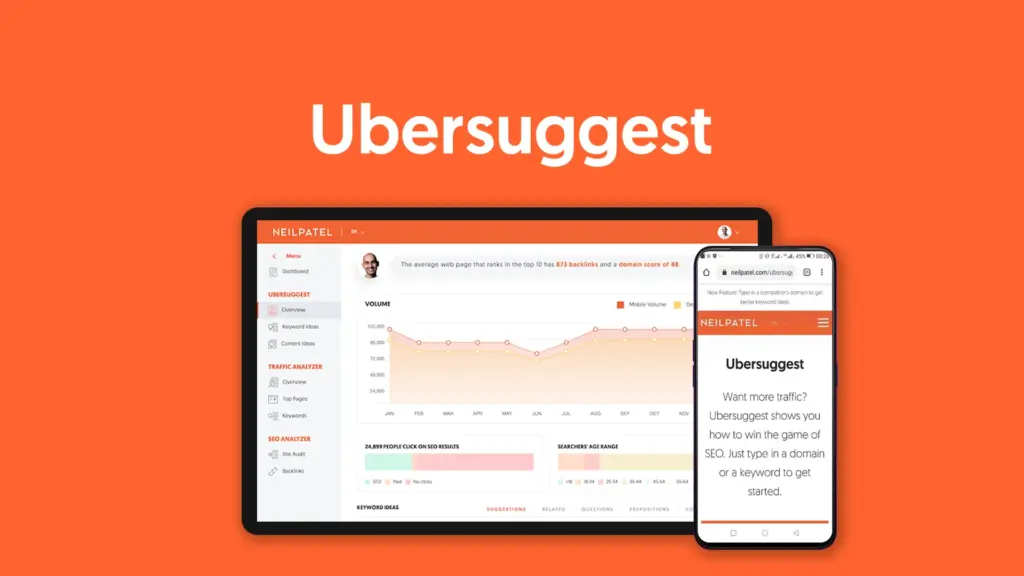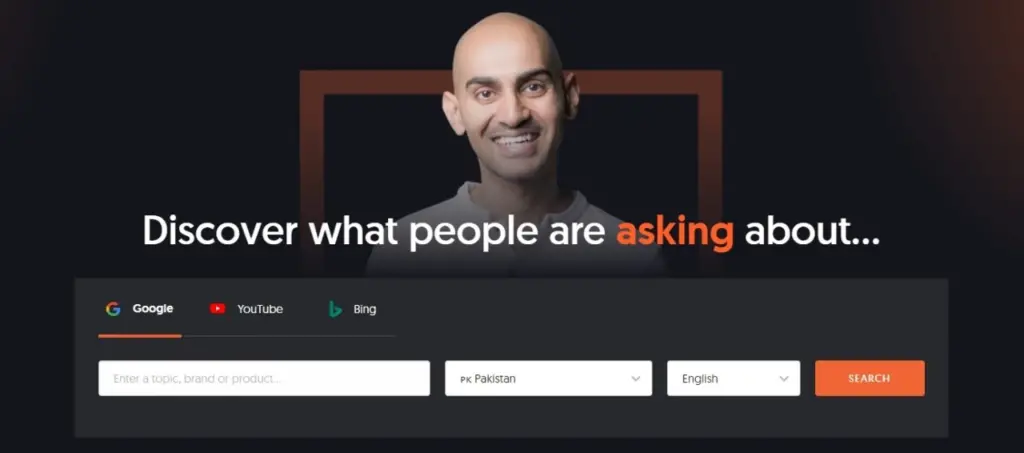How To Do Free Keyword Research With ChatGPT: A Beginner’s Guide
Hello, everyone! Chad Portnova here. Today, I’m thrilled to walk you through the surprisingly simple yet powerful world of how to do free keyword research with ChatGPT. Forget about needing any Chrome extensions, fancy software, or subscriptions. All you need is a free ChatGPT account.
This guide will walk you through the simple steps to sign up for ChatGPT and other valuable resources, ensuring you have all the tools you need to optimize your content and reach your target audience effectively.
Table of Contents
- Getting Started with ChatGPT
- Signing Up for a Free ChatGPT Account
- ChatGPT Prompt Crafting
- Exploring Other Free Keyword Research Tools
- Google Keyword Planner
- Ubersuggest
- Combining Ubersuggest and ChatGPT Insights
- AnswerThePublic
- Implementing Keywords into Your Content Strategy
- Key Takeaways
- FAQs
- Conclusion and Next Steps

Getting Started with ChatGPT
Signing Up for a Free ChatGPT Account
To begin unlocking the potential of AI-driven keyword research, you’ll first need to create a free account with ChatGPT. Here’s how:
- Navigate to OpenAI’s ChatGPT: Start by visiting OpenAI’s ChatGPT page. This is where the magic happens, allowing you to interact with the AI.
- Sign Up: Click on the “Sign Up” button. You’ll be prompted to enter your email address or sign up using an existing Google or Microsoft account for convenience.
- Verify Your Account: After entering your details, OpenAI will send a verification email. Click the link within to activate your account.
- Start Exploring: With your account set up, you’re ready to start exploring ChatGPT. Simply type in your queries or prompts and let the AI generate keyword ideas for you.
ChatGPT Prompt Crafting
Once signed in, try crafting prompts for keyword research. For instance, type “give me 50 semantically relevant long-tail keywords on [your topic here]” to generate a list of keywords.
ChatGPT’s interface, showing an example prompt for keyword research and the AI’s responses.
ChatGPT Prompt for keyword Research
give me 50 semantically relevant long-tail keywords on dog training
give me 50 semantically relevant long-tail keywords on [add your keyword here]

Exploring Other Free Keyword Research Tools
While ChatGPT offers a great starting point, diversifying your toolkit can enhance your SEO strategy. Here are a few other free tools worth exploring:

Google Keyword Planner
- Access Google Ads: Google Keyword Planner is a part of Google Ads. Start by creating an account at Google Ads.
- Navigate to Keyword Planner: Once logged in, find the “Tools & Settings” icon at the top right, then select “Keyword Planner” under the “Planning” section.
- Discover New Keywords: Use the “Discover new keywords” option to start your research. Input topics related to your content and review the suggestions.

Ubersuggest
Unlocking the Power of Ubersuggest for Keyword Research
Expanding your SEO Arsenal: Combining Ubersuggest and ChatGPT for Comprehensive Free Keyword Research
In the realm of digital marketing, having access to the right tools can dramatically transform your SEO strategy. While Ubersuggest offers a wealth of data on keywords, combining its insights with the innovative AI capabilities of ChatGPT can provide a more rounded approach to keyword research. Here’s how to navigate Ubersuggest for in-depth research and leverage ChatGPT for creative keyword discovery.
Getting Started with Ubersuggest
1. Navigating to Ubersuggest: First, open your web browser and go to Ubersuggest. You’ll be greeted by a straightforward interface, ready to guide you through the intricacies of SEO analytics and keyword planning.
2. Signing Up for Enhanced Features: To unlock Ubersuggest’s full potential:
- Click on the “Sign Up” button located prominently on the page.
- You will be presented with options to create an account; choose between using a Google account for convenience or another email service for registration.
- Follow the on-screen instructions to complete the signup process, which is designed to be quick and hassle-free, allowing you immediate access to advanced features.
3. Mastering Keyword Research with Ubersuggest: With access to Ubersuggest:
- Enter a keyword or domain in the search bar to initiate your research.
- Review the comprehensive data provided, including search volume, SEO difficulty, and cost per click for ads.
- Explore the keyword suggestions and related questions for content ideas, utilizing Ubersuggest’s detailed metrics to inform your SEO strategy.
Incorporating ChatGPT for Creative Keyword Discovery
1. Accessing ChatGPT: Visit OpenAI’s ChatGPT and log in or sign up if you haven’t already. ChatGPT’s interface is intuitive, making it easy to interact with the AI for various tasks, including keyword research.
2. Crafting Effective Prompts for ChatGPT: To utilize ChatGPT for keyword research, enter prompts that are specific to your content needs. For example, you can type, “give me 50 semantically relevant long-tail keywords on [your topic here],” replacing “[your topic here]” with your actual content focus, such as “eco-friendly gardening tips.”
3. Analyzing ChatGPT’s Suggestions: ChatGPT will generate a list of keywords based on your prompt. This AI-powered approach can uncover unique and less obvious keywords that your audience may use, offering creative angles for your SEO and content strategy.
Combining Ubersuggest and ChatGPT Insights
1. Validate ChatGPT Keywords with Ubersuggest: Take the list of keywords generated by ChatGPT and input them into Ubersuggest to analyze their search volume, competition, and potential effectiveness in your SEO strategy.
2. Content Strategy Development: Use the insights from both tools to develop a robust content strategy. Ubersuggest’s data provides the analytical foundation, while ChatGPT’s creative suggestions can inspire content that resonates deeply with your audience, ensuring your SEO efforts are both data-driven and creatively inspired.
3. Continuous Optimization: SEO is an ongoing process. Regularly revisit both Ubersuggest and ChatGPT to refresh your keyword list and content ideas, staying ahead of market trends and search algorithm updates.
Leveraging Ubersuggest alongside ChatGPT offers a comprehensive and cost-effective approach to keyword research. Ubersuggest provides the quantitative data necessary for informed decision-making, while ChatGPT offers qualitative insights that can spark creative content ideas. This dual approach ensures your SEO strategy is not only grounded in solid data but also resonates on a human level, enhancing your online presence and engagement.

AnswerThePublic
Enhancing Your Keyword Strategy with AnswerThePublic and ChatGPT: A Unified Approach
In the digital marketing landscape, understanding the queries and needs of your target audience is crucial for creating impactful content. AnswerThePublic, with its focus on user-generated questions, and ChatGPT, an AI-driven platform by OpenAI, offer complementary resources for deep-diving into keyword research. Here’s a streamlined guide to utilizing these tools effectively.
Getting Started with AnswerThePublic
1. Visiting AnswerThePublic: Begin your journey by navigating to AnswerThePublic.com. This platform offers a unique insight into the questions and phrases your audience uses, presenting a visual representation of data that’s both informative and easy to understand.
2. Accessing Free Features: AnswerThePublic allows immediate access to its basic features without the need for account creation. Simply enter a keyword into the search bar, and the tool generates a comprehensive report of related questions, prepositions, and comparisons. This immediate, no-sign-up-required approach enables you to quickly grasp the scope of public interest around specific topics.
3. Signing Up for Enhanced Insights (Optional): For those seeking more depth and tracking capabilities, AnswerThePublic offers a “Pro” version. To explore this:
- Click the “Get Pro” option, prominently displayed in the top right corner of the homepage.
- You’ll be directed to a selection of plans, each designed to fit different needs and budgets. Review these plans to find one that aligns with your requirements.
- Selecting a plan will prompt you to the registration page, where you’ll enter your email and set a password.
- For Pro users, entering payment details is the next step. This version often comes with a trial period, allowing you to assess the Pro features without immediate commitment.
4. Diving Into Keyword Research: With access (free or Pro), dive into the tool’s capabilities. Input your central topics to uncover a plethora of user questions, providing a goldmine of content ideas aimed directly at addressing your audience’s inquiries.
Incorporating ChatGPT for Creative Expansion
Leveraging ChatGPT for Keyword Inspiration: While AnswerThePublic offers a structured overview of user queries, ChatGPT can add layers of creativity to your keyword strategy. Access ChatGPT through OpenAI’s portal, using prompts like “give me 50 semantically relevant long-tail keywords on [your topic]” to generate a diverse range of keyword ideas. This AI’s ability to interpret and expand on topics can reveal unexpected angles and niches for your content.
Synthesizing Insights from Both Platforms: Use AnswerThePublic to get a direct look at your audience’s questions and combine this with ChatGPT’s creative suggestions to form a comprehensive keyword list. This approach not only grounds your strategy in actual user queries but also infuses it with innovative ideas that could set your content apart.
Optimizing Your Content Strategy: Armed with a robust list of keywords and questions from both tools, you can craft content that resonates deeply with your audience’s needs and searches. Incorporate these findings into your articles, blog posts, and web pages to enhance visibility and engagement.
By harmonizing the insights from AnswerThePublic with the creative prowess of ChatGPT, digital marketers and content creators can develop a keyword research strategy that’s both data-driven and imaginatively rich. This comprehensive approach ensures your content is not only found but also cherished by your target audience, ultimately enhancing your online presence and authority.
Remember, the key to successful keyword research lies in continuous exploration and adaptation. Stay curious, keep experimenting with different tools and approaches, and watch as your content reaches new heights of engagement and effectiveness.

Implementing Keywords into Your Content Strategy
With a list of keywords at your disposal, the next step is to incorporate them into your content. Remember, the goal is to use these keywords naturally within your titles, headers, and body text to improve your SEO rankings and meet your audience’s search intent.
This crucial step involves seamlessly integrating your carefully selected keywords into your website’s content, ensuring that your articles resonate with both readers and search engines. The overarching aim is to strike a balance between keyword optimization and providing valuable, user-friendly content.
Firstly, focus on your article titles. Craft compelling headlines that not only capture the essence of your content but also incorporate relevant keywords naturally. Your title is often the first thing users see in search results, making it a critical element for both SEO and click-through rates. By including keywords in your titles, you increase the likelihood of your content being discovered by users actively seeking information on your chosen topics.
Next, headers and subheaders within your content are prime real estate for keyword placement. These headers break up your content, making it more digestible for readers while also signaling to search engines the structure of your article. Incorporate keywords into these headers, ensuring they accurately reflect the sections they introduce. This not only enhances SEO but also guides users through your content, improving the overall user experience.
As you move into the body of your content, remember that keyword usage should be organic and seamless. Avoid keyword stuffing at all costs, as it not only detracts from the readability of your content but can also negatively impact your SEO. Instead, focus on naturally weaving keywords into your writing where they fit contextually. Craft informative, engaging, and well-researched content that aligns with your audience’s search intent, while also making strategic use of your keywords.
In summary, implementing keywords into your content strategy is about finding the delicate balance between SEO optimization and user experience. Craft captivating titles that incorporate keywords, utilize headers and subheaders effectively, and seamlessly integrate keywords into your content while maintaining its quality and readability. By doing so, you’ll enhance your chances of ranking higher in search engine results and meeting your audience’s search intent.
As we wrap up this guide, let’s distill the essence of what we’ve learned about leveraging ChatGPT and other free tools for keyword research. This journey through the realms of AI-driven insights and comprehensive keyword strategies is designed to empower you, whether you’re a seasoned marketer or just starting out. Here are the pivotal points to carry forward:
Key Takeaways
- ChatGPT Revolutionizes Keyword Research: Chad Portnova introduced us to the simplicity and effectiveness of using ChatGPT for keyword discovery. Without the need for any additional tools or subscriptions, ChatGPT opens up a world of possibilities, generating a wide array of semantically relevant, long-tail keywords that can significantly boost your content’s SEO.
- Easy Access to ChatGPT: Signing up for a free ChatGPT account is straightforward. With just a few steps—visiting OpenAI’s ChatGPT page, signing up, and verifying your account—you gain access to an AI companion ready to assist with your keyword research needs.
- Prompt Crafting for Precise Results: Learning to craft effective prompts is key to extracting valuable keywords from ChatGPT. By specifying your topic, you can generate a diverse list of long-tail keywords, providing a solid foundation for your SEO strategy.
- The Value of Diversifying Tools: While ChatGPT offers a great start, incorporating tools like Google Keyword Planner, Ubersuggest, and AnswerThePublic can enrich your SEO arsenal. Each tool brings unique strengths, from detailed search volume data to insights into user questions, enhancing your ability to target your content effectively.
- Strategic Keyword Implementation: Beyond discovery, the successful integration of keywords into your content is crucial. This guide emphasized creating engaging titles, using headers for structure, and weaving keywords into your content naturally. Balancing SEO optimization with readability ensures your content resonates with readers and search engines alike.
- Continuous Exploration and Optimization: SEO is not a one-and-done task. The digital landscape is ever-evolving, necessitating regular revisits to your keyword strategy and content. Staying curious, adapting to new trends, and leveraging updates in AI and SEO tools will keep your content relevant and engaging.
- Empowerment through Knowledge: This guide serves as more than just a walkthrough; it’s a testament to the power of accessible technology in democratizing SEO. With ChatGPT and the array of free tools at your disposal, optimizing your content for search engines and audiences has never been more attainable.
- Your Journey Doesn’t End Here: Continue to experiment with different prompts in ChatGPT, explore the advanced features of tools like Ubersuggest and AnswerThePublic, and always aim to refine your approach based on the insights gathered. SEO is a journey of constant learning and adaptation.
As Chad Portnova has expertly guided us through the nuances of free keyword research, the path forward is clear. Embrace these tools, integrate your findings into your content with care, and watch as your digital presence grows. Remember, the most powerful tool in your SEO toolkit is your willingness to learn and adapt. Happy researching, and may your content thrive in the vast expanse of the internet!
FAQs
Q: What is ChatGPT, and how can it assist me in my keyword research efforts?
A: ChatGPT is a language model by OpenAI that specializes in understanding and generating text that mimics human conversation. It’s invaluable for keyword research, capable of generating a diverse array of semantically relevant, long-tail keywords from simple prompts. This tool can broaden your SEO strategy by revealing niche keywords that align with your audience’s search habits.
Q: Is it free to create a ChatGPT account, and where can I sign up?
A: Absolutely, creating a ChatGPT account is free. To sign up, visit OpenAI’s ChatGPT page, click on “Sign Up,” provide your email, and follow the steps to verify your account via the confirmation email you receive.
Q: Can ChatGPT generate keywords for any topic I’m working on?
A: Yes, ChatGPT is designed to handle a wide range of topics. No matter your niche, ChatGPT can suggest relevant, long-tail keywords, enhancing the scope and visibility of your SEO content.
Q: Are there any limits on how many keywords ChatGPT can generate for me?
A: While there’s no set limit to the number of keywords ChatGPT can generate, the output may vary depending on your prompt’s specificity and the topic’s complexity. Experimenting with different prompts can help you obtain a wider selection of keywords.
Q: What other free keyword research tools are mentioned in this guide, and are they accessible without payment?
A: Besides ChatGPT, this guide mentions Google Keyword Planner, Ubersuggest, and AnswerThePublic. Each tool offers basic features for free, enabling comprehensive keyword research without financial investment.
Q: Do I need to sign up for accounts with the other keyword research tools mentioned?
A: While signing up for accounts with tools like Ubersuggest is optional, it can provide access to more advanced features. However, these tools still offer significant value without an account for those beginning their keyword research.
Q: How can I integrate keywords into my content strategy effectively, avoiding keyword stuffing?
A: To integrate keywords effectively, ensure they fit naturally within your titles, headers, and body text, enhancing rather than detracting from your content’s value. Aim for a balance between SEO optimization and maintaining the quality and readability of your content.
Q: Why should I diversify my keyword research across multiple tools?
A: Diversifying your keyword research tools gives you a broader perspective on your SEO strategy, combining ChatGPT’s AI-generated creativity with the data-driven insights of tools like Google Keyword Planner and Ubersuggest. This comprehensive approach can uncover unique keywords and insights, providing a competitive edge in your content creation.
Q: What key takeaways should I remember from this guide on conducting free keyword research with ChatGPT?
A: Remember, leveraging ChatGPT alongside other free keyword research tools offers a well-rounded approach to uncovering and implementing effective keywords. This strategy not only enhances your SEO efforts but also ensures your content resonates more deeply with your target audience.
Conclusion and Next Steps
You’re now equipped with the knowledge to embark on your free keyword research journey using ChatGPT and other valuable tools. By incorporating AI and various resources into your strategy, you’ll be better positioned to create content that resonates with your audience and ranks well on search engines.
Call to Action: Dive into ChatGPT and start exploring the vast possibilities of AI-driven keyword research today. Remember, SEO is an ongoing process, so continue to learn, adapt, and grow your skills. For further reading and resources on content optimization, consider visiting My Content Creator Pro and enhance your digital prowess with our comprehensive Free WordPress Training.



